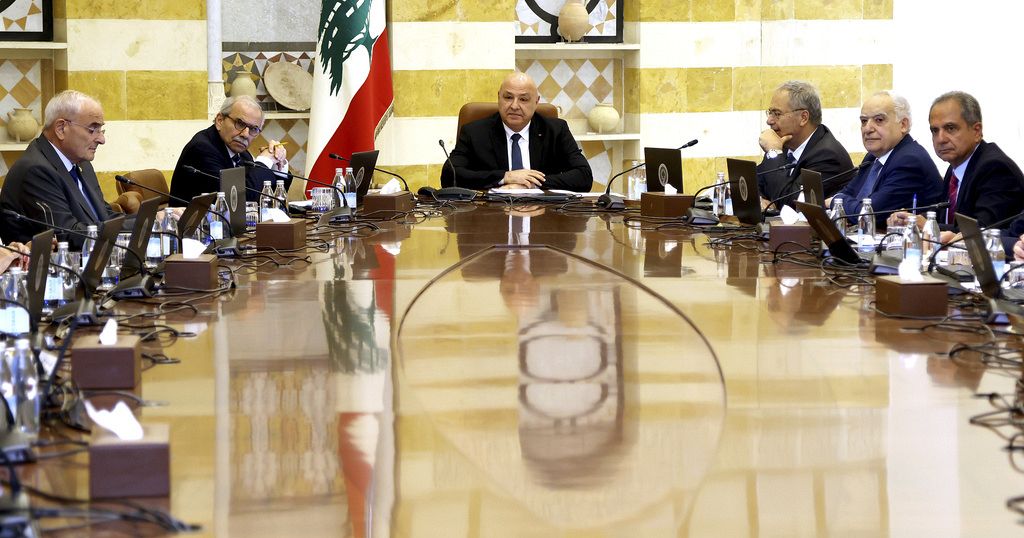The Lebanese government called on its national army Tuesday to draft a plan by year’s end to consolidate all weapons under state control, a direct challenge to the Iran-backed Hezbollah, which has vowed to resist disarmament. Prime Minister Nawaf Salam announced the directive following a tense Cabinet session lasting nearly six hours, hours after Hezbollah leader Naim Kassem declared the group would not surrender its arms and threatened renewed missile attacks on Israel if military operations against the faction escalate.
The decision reflects mounting U.S. pressure on Beirut to disarm Hezbollah, which fought a debilitating 14-month conflict with Israel that ended with a U.S.-brokered ceasefire in November. The war left the group significantly weakened, with key leaders killed, though it retains influence in Lebanese politics. U.S. envoy Tom Barrack, during a July visit, urged Lebanese officials to adopt a firmer stance on the issue, according to sources familiar with diplomatic talks.
Hezbollah’s disarmament remains contentious domestically, with President Michel Aoun renewing calls last week for the group to relinquish its weapons—a demand that drew sharp criticism from its leadership. During Tuesday’s Cabinet meeting, two ministers aligned with Hezbollah exited the session in apparent protest, signaling deepening political fractures.
The ceasefire agreement, which halted daily cross-border strikes that displaced 60,000 Israelis and killed hundreds in Lebanon, remains a focal point of dispute. Hezbollah insists it bars only military activity south of the Litani River, where it has withdrawn most fighters and arms. Israel and the U.S., however, argue the accord requires full disarmament across Lebanon. The pact’s ambiguity has stalled progress: Lebanese authorities are tasked with dismantling “unauthorized facilities” south of the river first, but Hezbollah maintains its presence northward is exempt—a stance rejected by Israel, which accuses the group of rebuilding military capabilities.
Hezbollah officials have repeatedly tied disarmament talks to Israel’s withdrawal from five strategic hills in Lebanese territory and an end to near-daily airstrikes, which they allege target civilians. Israel claims the sites overlook northern communities and serve as observation points for attacks. Since the ceasefire, Hezbollah has acknowledged only one cross-border assault, while Lebanese factions remain divided on whether the group’s arms undermine sovereignty or serve as a deterrent.
The army’s forthcoming plan, due by month’s end, now faces formidable hurdles: reconciling international demands, internal political resistance, and Hezbollah’s entrenched position as both a militia and a political actor. As regional tensions simmer, the move underscores Lebanon’s precarious balancing act in addressing one of the Middle East’s most persistent security challenges.
